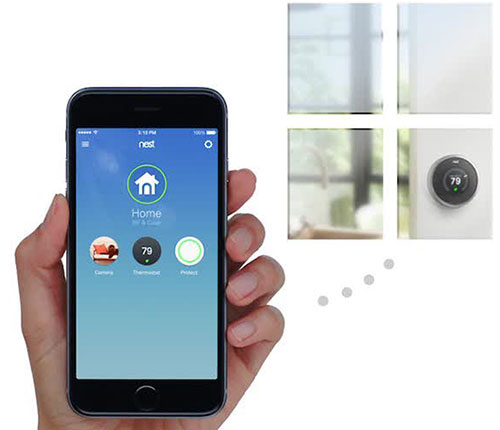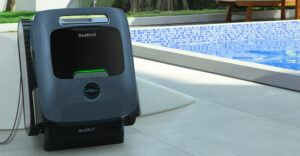Nest on Thursday announced two new features, Family Accounts and Home/Away Assist.
Family Accounts would let up to 10 people access the Nest products in a connected home from their Android or iOS devices. That means an end to sharing logins and passwords, the company said. Users can be added or removed seamlessly from the Family Account, which can provide notifications to the entire family. Users also can get updates from Nest Protect, check in with the Nest Cam and receive a monthly report on product usage.
“Family Accounts allows everyone in the home to connect to the Nest app with their own Nest Account. The whole family can now control products, view live video streams from Nest Cam, receive notifications and get their own copy of the monthly home report,” a Nest spokesperson said in a statement provided to TechNewsWorld by company rep Ivy Choi.
Home/Away Assist was designed to track the patterns of household members, utilizing learning algorithms and activity sensors that are built into products such as the Nest Learning Thermostat. The feature also works with a smartphone’s location services to determine which, if any, users are at home.
“With Home/Away Assist, the company is getting even better at knowing when people are home or away, so Nest products can use the location of your phone in addition to built-in sensors and algorithms to do the right thing at the right time,” the Nest spokesperson said.
Tracking Multiple Handsets
The features utilize sensor data, algorithms and location data from multiple handsets to help ensure that users will have the temperature just where they want it as they enter and exit certain areas of a house.
“There are plenty of benefits that this system offers, and it goes part and parcel with the smart connected home,” said Susan Schreiner, principal analyst atC4 Trends.
“This is about more than just energy efficiency. It becomes a question of how this can fit into your lifestyle to make the home more comfortable, but it comes with some trade-offs,” she told TechNewsWorld.
Privacy Concerns
One trade-off is the level of tracking and monitoring that Nest would need to utilize to make its system work. People who have privacy concerns may not be ready to have smart home devices track their movements inside and outside the home, according to Schreiner.
“For this system to really work you need to give away a certain level of privacy, so people are going to have to come to grips with their own definition and security,” she said.
“There is going to be a trade-off between in-home functionality and privacy,” said Roger Kay, principal analyst atEndpoint Technologies Associates.
“Since information is reflected through servers — cloud — private data is going to the outside world,” he told TechNewsWorld.
“Some people don’t care, but even a small amount of metadata can tell you a lot about what’s going on,” Kay added.
Safety and Security
Security is another potential concern.
Home/Away Assist needs to know only whether you’re home, and the information would be encrypted, Nest said.
If that personal data were to fall into the wrong hands, however, it could allow someone to monitor patterns and routines of family members.
“If you recall a couple of years ago, there were some warnings that people shouldn’t advertise that they were traveling and that you should be discreet on social media when on vacation so as not to advertise that you aren’t home,” warned Schreiner.
“This isn’t really the same, but it does suggest that there is a reason to consider how much you might want any system to track or monitor your movements,” she said.
“Clearly what is happening isn’t a one size fits all,” Schreiner added. “Some may be more willing to adapt to the benefits of a smart home, but if you look at this closely, there are some creepy aspects to this new technology.”























































Never been a fan of Nest or any other expensive tool to supposedly save money on your climate system. This just sounds like a product built for a tech junkie who thinks everything can be done better by a device. Its another crutch for a society bent on leaving a human task up to a computer so they don’t have to think about it. The thing is about climate systems is people generally like what they like in temperatures when they are home. Nobody wants to be cold or hot and will set their thermostat according to this. Its not a complicated thing to adjust a basic thermostat and most savings will not occur by buying a expensive thermostat. But by having a well insulated home, and a efficient HVAC system. One has to wonder how long the pay back is with a Nest or other expensive programable thermostat?
If I AM willing to accept a colder temp in the Winter and warmer temps in the Summer a $20 basic T-Stat could save me plenty of dollars too, If I’m willing to endure being less comfortable. At the price of a Nest its not going to ever attract those who really could benefit from the savings. Those who buy a Nest probably have no problem paying their bills. As I said at first, this is more about satisfying some tech junkies dream of sitting at a restaurant and saying "Oh I forgot to turn down the heat" "No problem, I’ll just use my Nest app and do it now". Now the question is, did this person just play dumb to justify using the app? Or are we simply becoming more mindless because of technology?